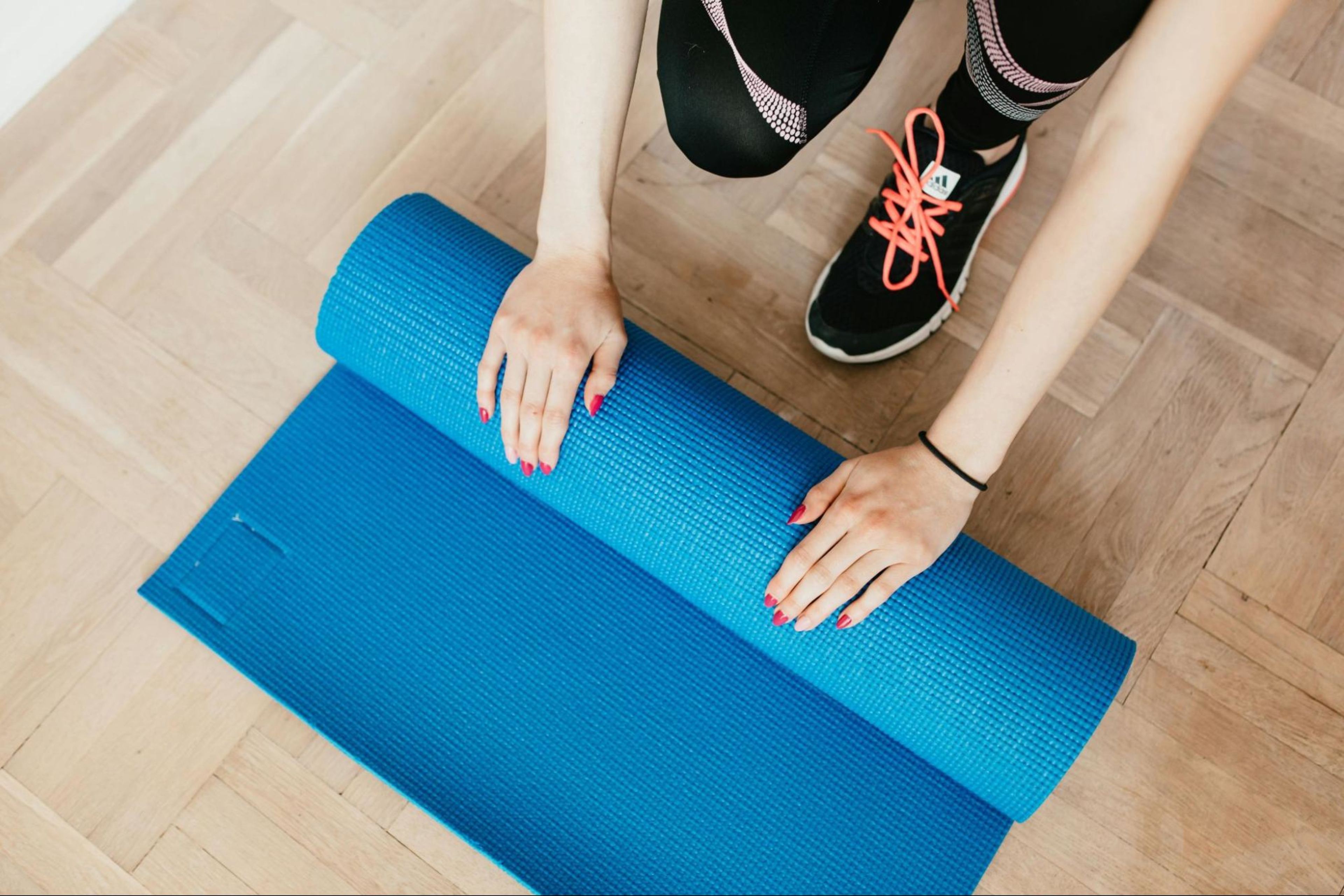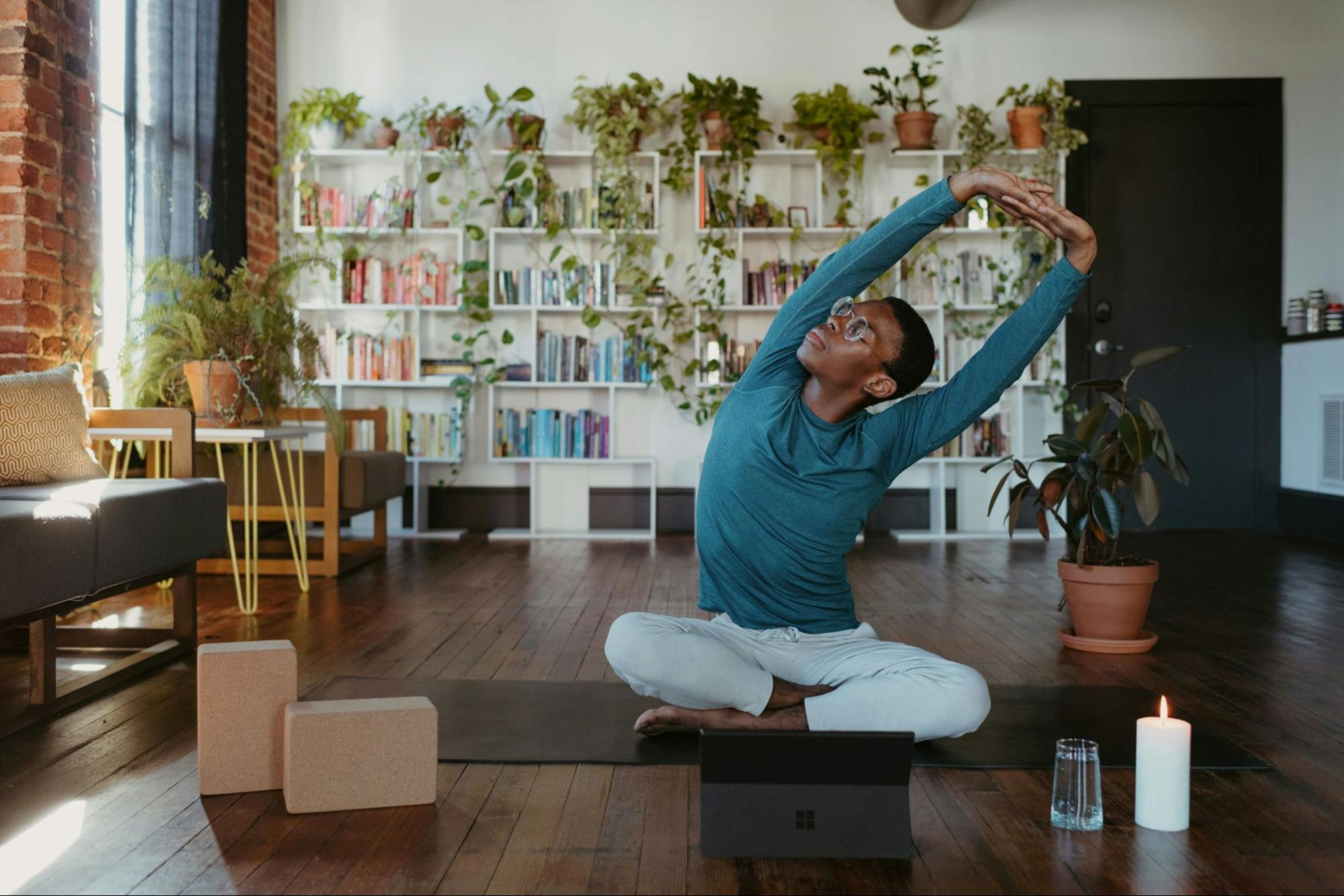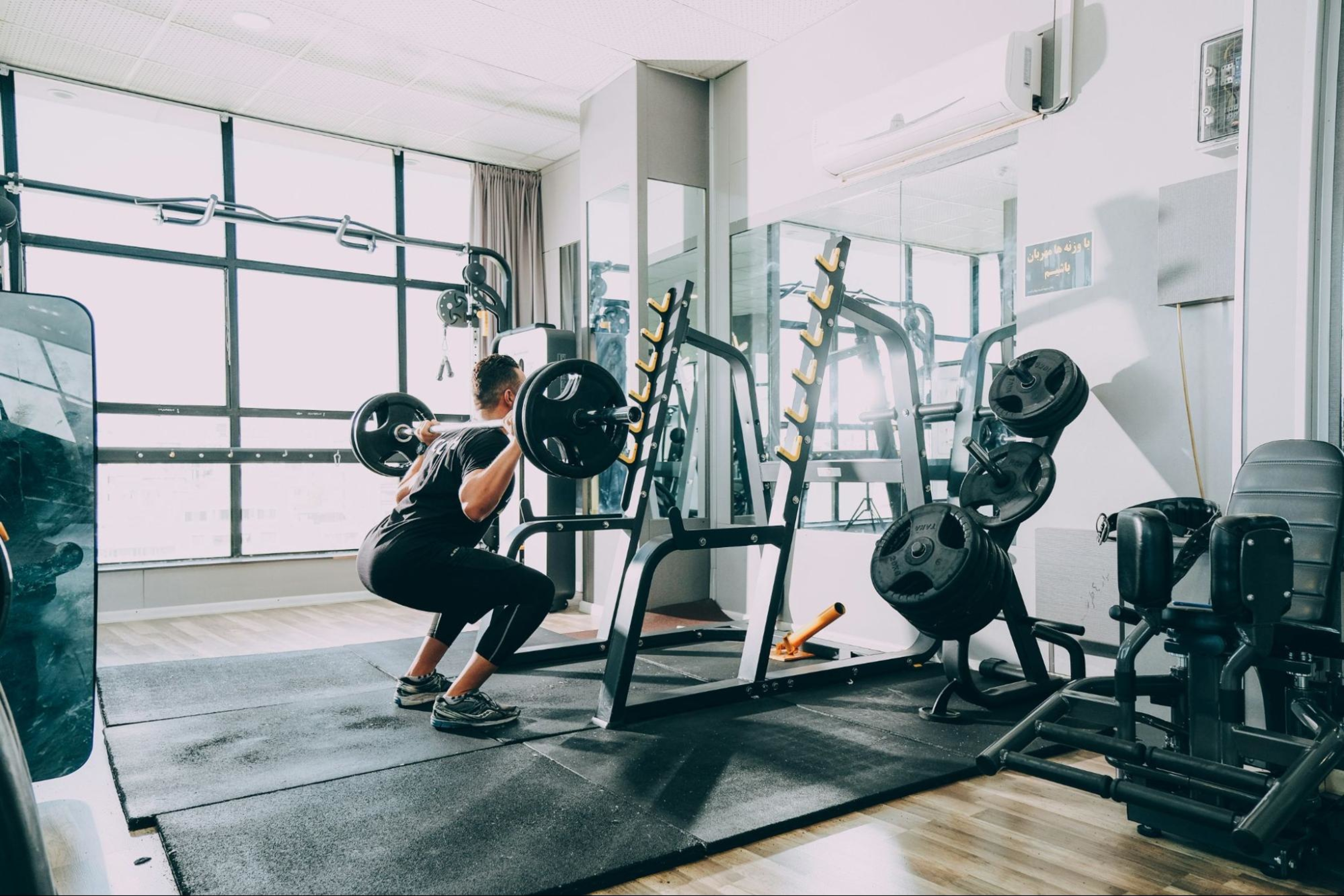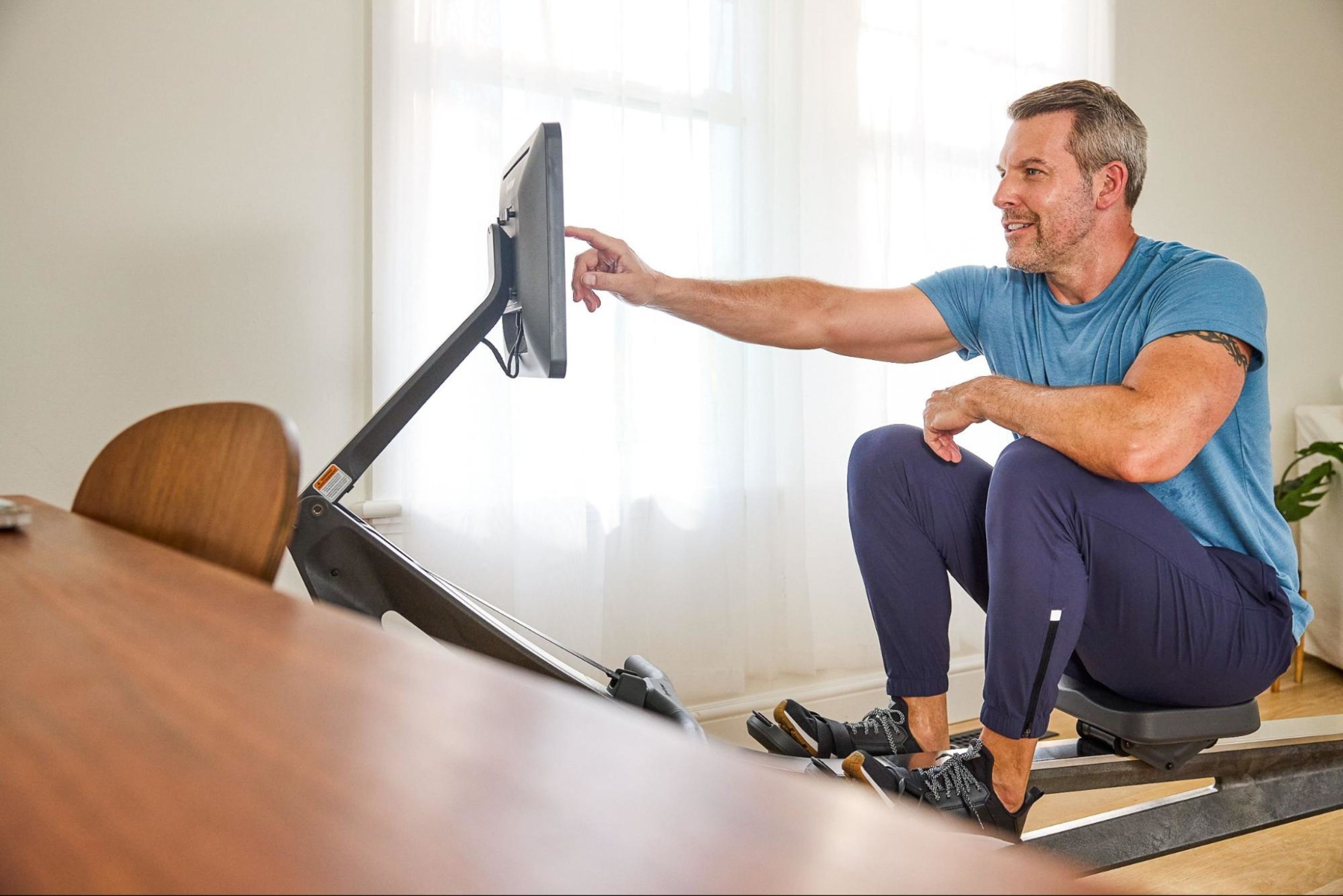Home Gym vs. Gym Membership: Which Is Right for You?
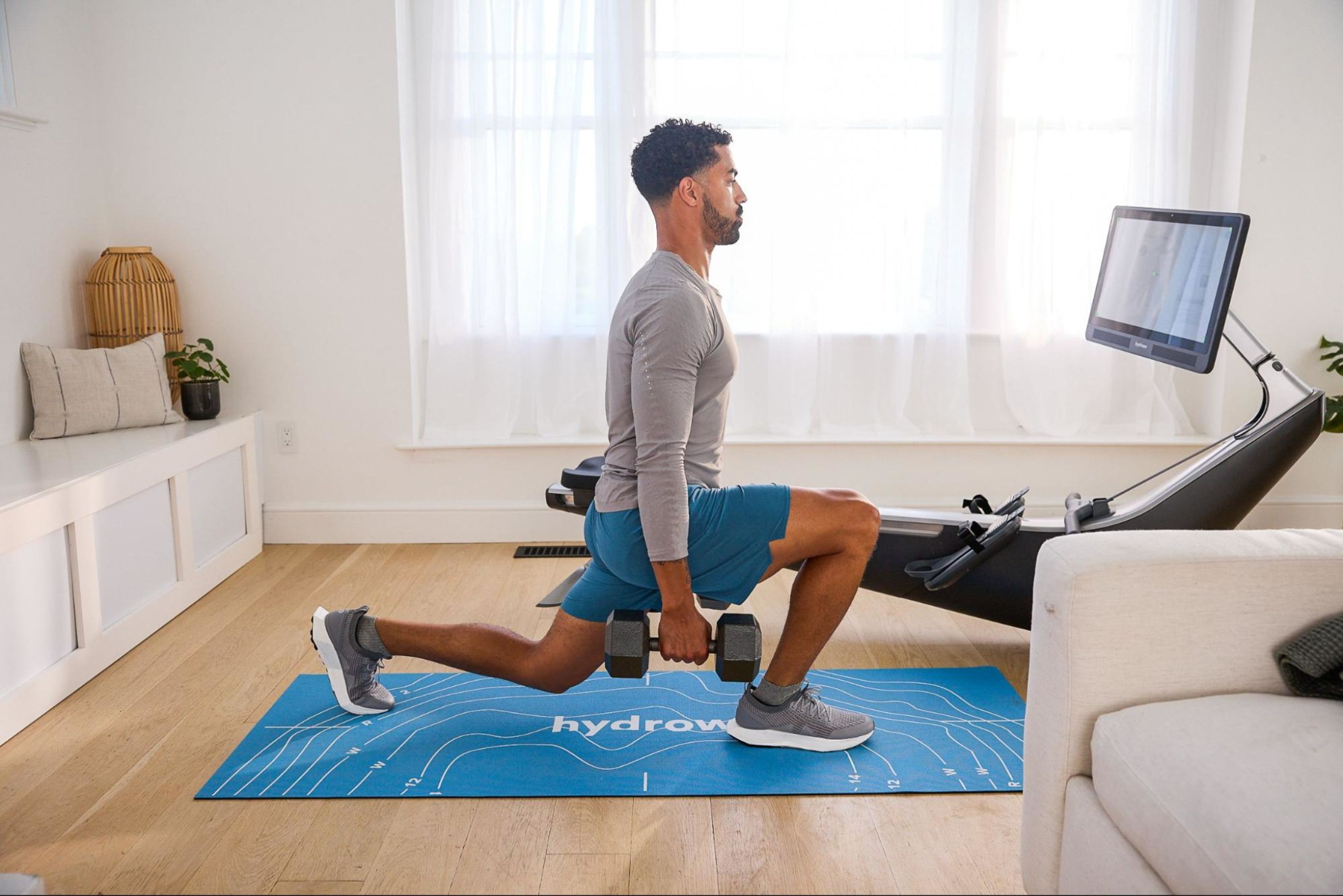
Choosing between setting up a home gym and investing in a gym membership can be a dilemma for anyone looking to embark on their fitness routine. Ultimately, this decision is highly personal and depends on a variety of factors, including your individual fitness goals, lifestyle, and motivations.
Make the best decision for your fitness ambitions below as we explore:
Let’s dive in!
Home gym vs. gym membership: Which factors matter?
When deciding between a home gym and a gym membership, you should consider several key factors before making your final decision:
Your fitness goals and workout preferences
Lifestyle factors
What motivates you
Your fitness goals and workout preferences
Your fitness goals and workout preferences are critical in this decision. If you prefer specific workouts like weightlifting, cardio, or yoga, you need to consider which environment best supports these activities.
For example, home gyms can be tailored to your preferred workouts, while commercial gyms can offer a variety of equipment and classes that may not be accessible at home.
Lifestyle factors
Your time availability, proximity to gyms, and privacy concerns should also help determine your final decision. If you have a busy schedule, a home workout can save you commuting time. On the other hand, if you enjoy the social aspects of a gym and the competitive nature of live classes, a gym membership may be the better choice.
What motivates you
Consider whether you are intrinsically or extrinsically motivated. A home gym might be best if you are self-motivated and disciplined. However, if you thrive on external motivation from classes or working out with friends, a gym membership could be more effective and beneficial.
The benefits of a home gym
Home gyms offer numerous advantages that can make them an appealing choice, especially for beginners who may feel intimidated by exercising in front of peers. Some benefits include:
Convenience and accessibility
Personalized workout environment
Time and schedule flexibility
Long-term cost savings
Privacy
Family-friendliness
Let’s get into the nitty-gritty:
1. Convenience and accessibility
A home gym provides the ultimate convenience. You can work out anytime without worrying about gym hours, travel time, or peak periods in which your favorite machine might already be in use. You’ll be able to access your own home gym equipment when it’s convenient for you.
2. Personalized workout environment
You can customize your workout space to fit your personality and your needs. Investing in a home gym may involve installing a squat rack, investing in a rowing machine, or creating a comfortable atmosphere to motivate your daily exercise routine.

Explore Hydrow’s library of 5,000+ rowing, circuit training, yoga, Pilates, and mobility workouts.
3. Time and schedule flexibility
With a home gym, you can exercise at your own pace and on your own schedule. Sneak in a rowing workout between meetings or try to take a self-paced yoga flow without having to snag a spot on a waitlist. You also save time by skipping the commute, avoiding driving or taking public transportation altogether.
4. Long-term cost savings
Although the initial investment might be high, particularly if you want to purchase equipment or free weights, setting up a home gym can save you money in the long run compared to some luxury gyms’ monthly membership fees.
5. Privacy
Working out at home means you don’t have to worry about others watching you or needing to use a public changing room. This is a significant advantage for those who value their privacy or may feel self-conscious in a gym environment.
6. Family-friendliness
A home gym can be used by all family members, making it a valuable investment for everyone’s fitness. At the same time, you can also monitor small children from home while you exercise.
Related blog: How to Work Out When You Have Kids
The drawbacks of a home gym
Despite the benefits that a home gym has to offer, there are a few downsides that you’d need to embrace by choosing this method. You should consider the following:
Initial investment costs
Limited social interaction and accountability
Space limitations
Lack of equipment variety
Potential motivation challenges
Take note of the following details before jumping in:
1. Initial investment costs
Setting up a home gym can be expensive initially, especially if you want high-quality equipment like an exercise bike, squat rack, or cardio machines. You may have to start small and work your way up by investing in one piece of equipment or cardio machine at a time.
2. Limited social interaction and accountability
Working out alone at home can be hard for extroverts who crave the social nature of a commercial gym setting. Moreover, going to the gym can provide accountability, whether you go alone or with a friend. Exercising at home takes self-discipline to avoid distractions while you’re working out.
3. Space limitations
Whether you live in an apartment or your home simply doesn’t have the space, creating a home gym does require a significant amount of space, especially for large gym equipment. If you lack a dedicated area or don’t have room to store exercise materials, it may not be a great choice for you.
4. Lack of equipment variety
Even with a well-equipped home gym, you might not have access to the variety of equipment that is typically available at a commercial gym. If that’s important to you, you should consider investing in a gym membership instead.
5. Potential motivation challenges
Staying motivated can be more challenging without the structured environment and external encouragement that accompanies visiting a gym. Knowing you’re paying for a membership is sometimes the spark you need to get there.
The benefits of a gym membership
Investing in a gym membership can be a great way to get out of the house and escape into your workout each day. Consider the following benefits by committing to a commercial gym membership:
Wide range of equipment
Access to live classes
Social interaction and community atmosphere
Professional guidance and support
Dedicated workout environment
Structured programs
Amenities
Check out our details below about these great benefits.
1. Wide range of equipment
Commercial gyms often have dozens of exercise machines and free weights that would be incredibly expensive to buy for your home. These machines range from ellipticals and treadmills for cardio and all sorts of weight machines for strength training. Moreover, squat racks and even pools may be available at larger facilities.
2. Access to classes
By signing up at a local gym, you typically gain access to all that the gym has to offer. This could be a range of live classes like yoga, Pilates, and circuit training.
3. Social interaction and community atmosphere
Whether you’re an extrovert or simply just enjoy exercising in a group setting, a commercial gym is great for integrating into a community atmosphere. Take advantage of the natural competition that a gym can inspire or pick up tips from others on lifting form or yoga poses.

Did you know?
Over 90% of Hydrow members are still active one year later.
4. Professional guidance and support
Depending on the gym you select, some memberships offer access to personal trainers or allow you to purchase sessions with them. Moreover, taking live classes with a teacher can also help you develop confidence in your workouts as they will often provide helpful feedback to help you maximize your efforts.
5. Dedicated workout environment
Gyms are dedicated to facilitating a healthy and motivating environment that is inviting and geared to your success. Stepping out of your home and into this space may help to give you the spark you need to stick to your fitness goals without having to sacrifice space in your home for equipment.
6. Structured programs
Some commercial gyms offer structured programming for a variety of age groups, whether that’s for children, adults, seniors, or even teens. Enrolling the whole family can be a great way to exercise and take advantage of everything the gym has to offer.
7. Amenities
Many gyms these days offer luxe amenities such as saunas, steam rooms, or even cold plunge pools. Whether you’re interested in a smoothie bar or simply just need a fresh towel after your workout, you can scale up or down for the amenities that suit your lifestyle and your budget.
The drawbacks of a gym membership
Just like home gyms, memberships have downfalls as well. Before signing a contract, consider the following:
Membership fees and additional costs
Commute and time restraints
Busy peak hours and equipment availability
Privacy concerns
Lack of control over environment
Let’s get into the reasons below:
1. Membership fees and additional costs
While some gyms offer affordable memberships as low as $10 per month, other luxe gyms can charge several hundred dollars to access their catalog of classes and amenities. It’s important to read the fine print, too, for cancellation fees or no-show charges for missing classes.
2. Commute and time constraints
Traveling to and from the gym can take a significant amount of time, especially if you need to take public transportation or live far away. Consider the time of day you’d like to go and whether traffic may also impact the time it takes to get there.
3. Busy peak hours and equipment availability
If you work a traditional 9-5 job, you will likely need to visit the gym with the majority of other members to get your workout in. Keep in mind you may need to be patient in order to use all of the equipment for your routine as before 9:00 and after 5:00 are typically the busiest times at the gym.
4. Privacy concerns
For those who may be a bit more shy, accessing and utilizing a public locker room may give pause to some individuals. Moreover, when exercising in a public setting, there can be many eyes on you.
Whether you’re still building confidence or you simply prefer to exercise independently, you may want to consider your level of comfort of working out with an audience.
5. Lack of control over environment
Let’s face it. Going to a gym means you have to interact with a sector of the public. The type of gym you subscribe to will ultimately determine the attitude of the typical gym-goer you may be exercising next to. If it’s within your budget, try choosing a gym that aligns with your values and personality type to overcome this issue.
Comparing costs: Home gym vs. gym membership
For many, the ultimate decision you make to pursue your exercise goals may come down to budget. You can try to estimate how much each option will cost you by determining the following:
Initial investment and setup costs for a home gym
Monthly and annual expenses of a gym membership
Calculating long-term savings and payback period
Initial investment and setup costs for a home gym
If you choose to invest in your own home gym, you should determine what kind of exercises you are willing and able to do at home. If watching free YouTube videos of a yoga flow is your jam, you may just need to buy a yoga mat, which would cost you less than $20.
On the other hand, if weightlifting is your goal, then you’ll need to invest in dumbbells and a workout bench. You could choose a less expensive option of purchasing an adjustable weight set. Amazon sells one set for $199.99 which would be cheaper than buying individual weights.
Finally, some companies like Hydrow have a large investment in a machine—a rower in this case—and then allows you to access classes from home for a membership cost of $50 per month. Nevertheless, you can investigate which options work best and how you’d like to proceed.
Monthly and annual expenses of a gym membership
Depending on the gym you choose, you may be required to pay an enrollment fee or annual maintenance fee in addition to a monthly gym membership cost. There are a number of affordable gyms that offer basic amenities such as locker rooms and exercise equipment.
On the other end of the spectrum, there are many luxury gyms that function more like small country clubs that have amenities like lounges, child care, and spas.
Perhaps you’d like something somewhere in the middle, and that’s fine, too! Ultimately, you should research all of the amenities at each gym you’re considering.
Calculating long-term savings and payback period
In order to determine whether your home gym will be a better long-term investment, you’ll need to calculate the cost of each piece of equipment you’d like to purchase for your home. Remember to include costs of online class memberships, too.
To compare to gym membership costs, choose a gym you would consider attending. Add up the cost for a year’s membership and then compare that to the investment in your equipment. You can decide whether your desirable at-home gym would be worth it in the long-term or if the gym membership may be more valuable to you.
Related blog: How Much Does a Home Gym Cost?
Gym membership vs. home gym: Key takeaways
In the end, your personal needs and individual fitness goals will determine which plan is right for you. Just know that there are so many accessible and valuable methods to develop an exercise routine in this digital world. Whether you choose to enjoy your workout from home or at the gym, what ultimately matters is your commitment to your success and holding yourself accountable for bettering your health.
Looking for a smarter way to exercise at home? Rowing activates 86% of your muscles with every stroke, making it one of the most efficient ways to build total-body strength. In just 20 minutes on a rowing machine, you can get a full-body workout that boosts energy, builds endurance, and helps you move better—on and off the rower.
And with Hydrow, it’s easier than ever to stay consistent. No commute. No waiting for machines. Just expert-led workouts you can do from home, whenever it works for you. Choose from rowing, strength training, mobility, yoga, Pilates, and circuit training workouts, all designed to help you move better and feel stronger, long-term.
Our workouts are filmed on location in stunning waterways around the world and led by world-class Athletes who coach you through every stroke and rep. And with over 5,000 workouts ranging from beginner to advanced, it’s easy to keep progressing no matter your level.
Every movement adds up. Start building strength that lasts with Hydrow.
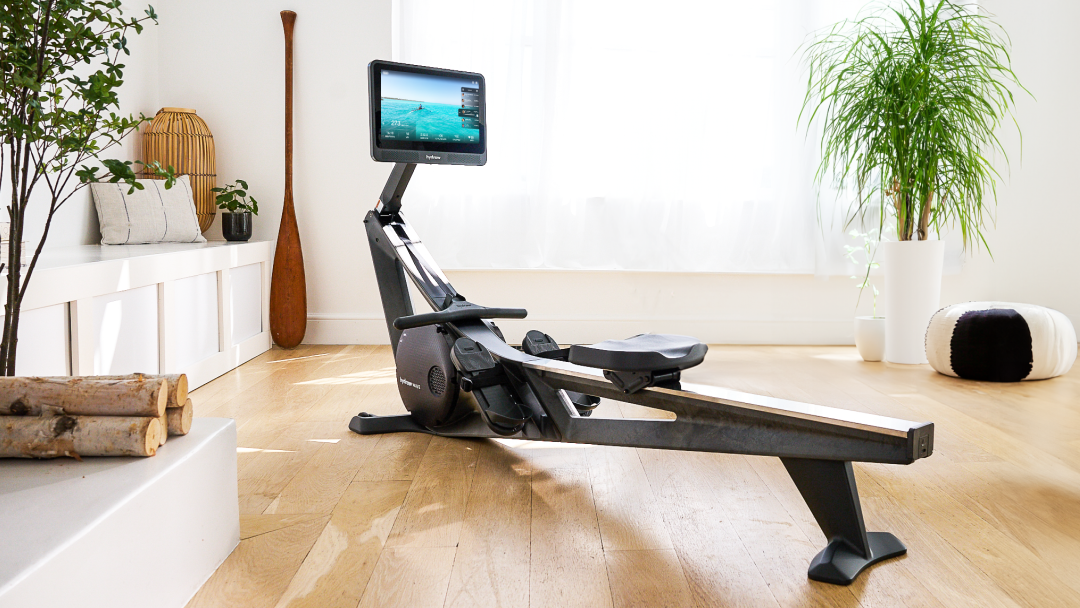
Real strength keeps moving
Learn how working out with Hydrow can help support a fuller, more active life.

